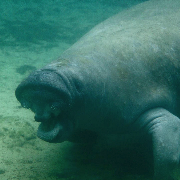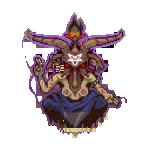|
Sheng-Ji Yang posted:https://twitter.com/KhaosodEnglish/status/1156098694137016320?s=19 lol it's good to be king I guess
|
|
|
|

|
| # ? May 4, 2024 05:01 |
|
https://www.theguardian.com/world/2019/aug/29/death-sentences-upheld-in-thai-backpacker-case-zaw-lin-wai-phyo-hannah-witheridge-david-miller theyre going to execute the two burmese migrants who they pinned the koh tao murders on https://twitter.com/zenjournalist/status/1166289612454711296 monarchies own
|
|
|
|
Sheng-Ji Yang posted:https://twitter.com/KhaosodEnglish/status/1156098694137016320?s=19 update on this: https://twitter.com/zenjournalist/status/1213085057927262208
|
|
|
|
so long story short is the royalist junta stole the election this thread was about, and then over the course of the next two years banned the New Future Party which is overwhelming supported by thai youth for not being nice enough to the king, and now this is happening https://twitter.com/zenjournalist/status/1307688459365224448 https://twitter.com/zenjournalist/status/1307688506249142272 https://twitter.com/zenjournalist/status/1307688566684876800 these protests are also directly anti-monarchy, which is vastly more radical than the red shirts were a decade ago.
|
|
|
|
heard thailand's getting spicy
|
|
|
|
ahaha that owns Something about this particular political crisis seems to me like such a throwback to an earlier era. Thailand has a military junta reminiscent of those in the 20th century paired with a hedonistic and powerful monarchy reminiscent of the 19th or earlier. And the protest movement kind of reminds me of the color revolutions from ten or 20 years ago, but Thailand's political institutions are so reactionary that even a liberal revolution would be a marked improvement. Meanwhile the rest of the world has moved on to neo-fascist governments led by civilians.
|
|
|
|
That's loving crazy Shenji
|
|
|
|
mila kunis posted:heard thailand's getting spicy the loving royal family's motorcade got swamped by protestors lol https://twitter.com/RichardBarrow/status/1316534827198238720 might not seem like much but a few years ago absolutely unthinkable. when the king was driving down the road everyone went to their knees, because you must be lower than the king. they used to shutdown the BTS skytrain system when the kings motorcade was driving around, causing massive traffic, because you couldnt have people above the king. lotta people guessing they drove the motorcade through protests on purpose to cause this confrontation and excuse for crackdown. todays supposed to be even bigger protests, govs basically declared martial law again using this as an excuse https://twitter.com/zenjournalist/status/1316616813623619585 https://twitter.com/Teirrabyte/status/1316610265996124162 https://twitter.com/_hominy/status/1316575565046923264?s=20 https://twitter.com/PravitR/status/1316583554952773632 Sheng-Ji Yang has issued a correction as of 07:15 on Oct 15, 2020 |
|
|
|
https://twitter.com/zenjournalist/status/1316691451498188803?s=19 https://twitter.com/KhaosodEnglish/status/1316674646670860288?s=19
|
|
|
|
https://twitter.com/uuumaamii/status/1317078828787793926?s=19
|
|
|
|
I get the feeling that a lot of governments are very mad that China let their protestors come up with these protest tactics and let western media amplify it
|
|
|
|
https://twitter.com/jgesilva/status/1317136652532240385?s=19
|
|
|
|
sheng-ji why are those two tweets so heavily ratio'd
|
|
|
|
i say swears online posted:sheng-ji why are those two tweets so heavily ratio'd idk ive noticed this on a lot of thai twitter stuff they retweet the poo poo out of it without liking it
|
|
|
|
that makes sense, maybe "retweets aren't endorsements" is thai legal precedent
|
|
|
|
is there a good biographical podcast or article about Vajiralongkorn? I've heard dribs and drabs about what an epic failson he is, but it would be great to have it all in one place.
|
|
|
|
Ramrod Hotshot posted:is there a good biographical podcast or article about Vajiralongkorn? I've heard dribs and drabs about what an epic failson he is, but it would be great to have it all in one place. excerpt from andrew macgregor marshalls book A Kingdom in Crisis, bit outdated now (published a few years before bhumibol died) quote:But, as always, intra-elite conflict and rivalry remained a highly destabilizing factor in Thai politics, despite the economic and sexual ties that wove the ruling class together. Feuding and squabbles even extended into Bhumibol’s immediate family, and by the 1970s the relationship between the king and queen had grown fractious. Much of the friction revolved around Vajiralongkorn. As the prince grew up, Bhumibol became increasingly dismayed by his son’s personality and behaviour, although Sirikit doted on her boy. Handley says that by the beginning of the 1970s, Vajiralongkorn ‘had become a disagreeable young man lacking any of the intellect, charm, curiosity, or diplomatic skills of his parents’ and who ‘treated aides with little respect and women as objects, using his power to get them to sleep with him’ (Handley, 2006a). When he turned 20 in 1972, Vajiralongkorn was formally designated heir to the throne. But he was already remarkably unpopular among Thais, who mocked and scorned him in private conversations. Far more admired was the prince’s younger sister Sirindhorn, an apparently amiable and unpretentious young woman whom many ordinary Thais adored.
|
|
|
|
who knew making a monstrous failson untouchable would upset the populace after his dad was a mostly alright guy
|
|
|
|
https://twitter.com/PravitR/status/1317361742586916870?s=19 shutting down the main public transport system of a city of 9 million people to own the libs
|
|
|
|
bumping this thread to say that the junta held an actual election for some reason and has been absolutely crushed, with the leftwing successor to the New Future Party currently leading and Thaksin's party second. the juntas parties are 4th and 5th lmao.
|
|
|
|
Sheng-Ji Yang posted:bumping this thread to say that the junta held an actual election for some reason and has been absolutely crushed, with the leftwing successor to the New Future Party currently leading and Thaksin's party second. the juntas parties are 4th and 5th lmao. Don't worry, they'll coup again in a few
|
|
|
|
Wow I cant believe the military lost a free and fair election!
|
|
|
|
hope to see a guillotine in action in my lifetime
|
|
|
|
they should just shoot the royal family in a basement, romanov style, then theres no monarchy to restore
|
|
|
|
i don't think there are any explicitly republican parties in thailand, even with the new shithead son. everyone loved the old king
|
|
|
|
what’s the likelihood we get a thai version of this video? I can’t imagine the Thai system will just shrug and let this happen. https://youtu.be/r6lqE_MQv8o
|
|
|
|
Zedhe Khoja posted:what’s the likelihood we get a thai version of this video? I can’t imagine the Thai system will just shrug and let this happen. more likely you will see a slow roll judicial coup. the very reactionary high courts love to ban parties & their leadership from ever running for elections again. if that triggers large protests then maybe another coup. however it usually takes years for the military to think its a good idea to try and run the government again, esp after a defeat like this. the military still also has a large chunk of the legislature guaranteed in their constitution, which will be the next big battle. the entire senate is entirely military appointed lol. i say swears online posted:i don't think there are any explicitly republican parties in thailand, even with the new shithead son. everyone loved the old king the move forward party is the very unofficial and unspoken republican party, or at least reining in the monarchy party. obviously it cant say that in any direct or indirect way without being banned instantly, but its who all the protestors from years ago back & has been labeled as such by the old yellowshirts/junta etc. its victory is bad news for the monarchy. Sheng-Ji Yang has issued a correction as of 19:02 on May 14, 2023 |
|
|
|
did they forget to rig the election or are they just counting on all 250 members of the senate being chosen by the military giving them enough control to keep their own guys in at prime minister
|
|
|
|
they prob have more than enough power to influence the country just like they have always had, and if needed can always just coup again
|
|
|
|
lobster shirt posted:did they forget to rig the election or are they just counting on all 250 members of the senate being chosen by the military giving them enough control to keep their own guys in at prime minister they're not the biggest riggers. they like to let a freely-elected gov't gently caress up and then step in i guess the senate is still hosed? dunno about electoral changes in the last decade
|
|
|
|
yeah the senate is exclusively chosen by the military and unlike most parliamentary systems (i thikn?) they vote equally with the lower house to choose the PM. looking at those numbers i don't think the top two vote getters are going to be able to assume power lol.
|
|
|
|
Sheng-Ji Yang posted:bumping this thread to say that the junta held an actual election for some reason and has been absolutely crushed, with the leftwing successor to the New Future Party currently leading and Thaksin's party second. the juntas parties are 4th and 5th lmao. Oh hey I was just talking to my wife's sister about this. She had to mail in a ballot as she's currently living with us and didn't think her vote was going to be counted lol.
|
|
|
|
lobster shirt posted:yeah the senate is exclusively chosen by the military and unlike most parliamentary systems (i thikn?) they vote equally with the lower house to choose the PM. looking at those numbers i don't think the top two vote getters are going to be able to assume power lol. https://twitter.com/PravitR/status/1657991241735475201?t=GPP9GLKuo70QqFBxdpYrWA&s=19
|
|
|
lol quote:As reported by the Guardian, Pita told a Thai YouTube channel that his time studying in New Zealand “truly sparked his love for politics”. He said: “I got shipped to the middle of nowhere in New Zealand and there were three channels back then. Either you watch Australian soap operas, or you watch the debates in parliament.” While doing his homework, he said, he would listen to broadcasts of speeches by Jim Bolger, the National prime minister from 1990 to 1997. https://thespinoff.co.nz/politics/15-05-2023/how-nz-telly-and-jim-bolger-inspired-the-man-on-the-brink-of-becoming-thai-pm
|
|
|
|
|
We liberalized some folks.
|
|
|
|
Look if you've still got a reactionary monarchy bourgeois liberals are an improvement
|
|
|
|
https://apnews.com/article/thailand-election-results-prayuth-shinawatra-opposition-53a21e086749fe4f7fc7643f6781da46quote:Candidates are handicapped by constitutional rules crafted by the military government to restrain political parties with populist appeals from taking root and upending the long established conservative order.
|
|
|
|
is there actually a possibility the appointed senators wouldn’t just all vote as a bloc? seems crazy to me
|
|
|
|
SJY is there any smoke to the rumor that my wife once mentioned in passing of Rama IX having his brother Rama VIII assassinated back in the day, or is that the Thai equivalent of a JFK assassination theory in the US?
|
|
|
|

|
| # ? May 4, 2024 05:01 |
|
What opponents call "dirty tricks" such as election manipulations, coup de etats, and martial law
|
|
|























